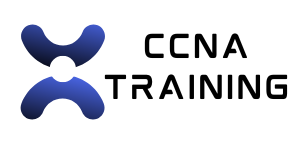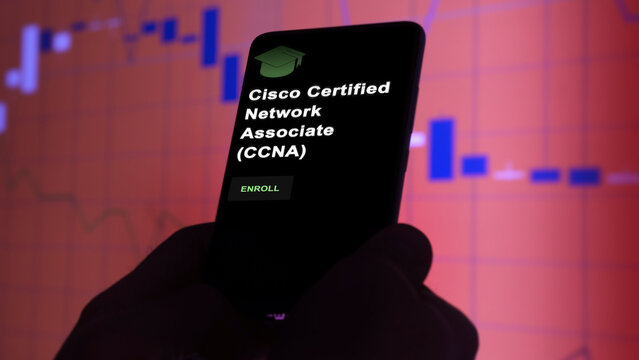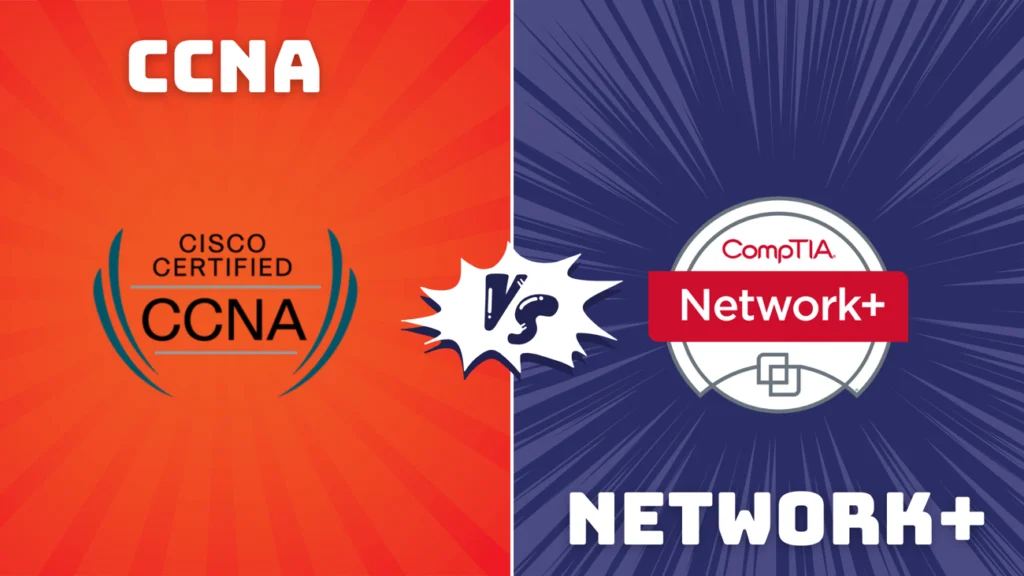The Cisco Certified Network Associate (CCNA) certification is a widely recognized credential in the IT industry. It validates the ability to install, configure, operate, and troubleshoot medium-sized routed and switched networks. The CCNA certification is an entry-level certification for network engineers and is a stepping stone for more advanced certifications such as CCNP and CCIE. It covers a wide range of networking topics including routing and switching, security, wireless, and more. Understanding the CCNA certification is crucial for anyone looking to pursue a career in networking. It is important to know the exam objectives, the format of the exam, and the prerequisites for taking the exam. Additionally, understanding the value of the CCNA certification in the job market and its potential career benefits is essential for setting clear study goals.
The CCNA certification is a valuable asset for anyone looking to advance their career in networking. It demonstrates a solid foundation in networking concepts and technologies and is recognized by employers worldwide. Understanding the value of the CCNA certification can help motivate individuals to pursue their studies and invest in their professional development. Furthermore, understanding the exam objectives and the format of the exam is crucial for effective exam preparation. The CCNA exam covers a wide range of topics including network fundamentals, network access, IP connectivity, IP services, security fundamentals, automation, and programmability. Knowing what to expect on the exam can help candidates focus their studies and prepare more effectively.
Key Takeaways
- CCNA certification is a valuable credential for networking professionals, covering a wide range of networking topics.
- Setting clear study goals is essential for effective preparation, including a study schedule and specific objectives.
- Utilize official study materials such as Cisco Press books and online resources to ensure comprehensive coverage of exam topics.
- Practice with hands-on labs to gain practical experience and reinforce theoretical knowledge.
- Join study groups and forums to engage with peers, share knowledge, and gain insights from others’ experiences.
- Taking practice exams helps to assess readiness and identify areas for further study and improvement.
- Stay updated with the latest exam changes and updates from Cisco to ensure preparation aligns with current exam requirements.
Setting Clear Study Goals
Setting clear study goals is essential for effective exam preparation. Before diving into the study materials, it is important to define specific, measurable, achievable, relevant, and time-bound (SMART) goals. This could include setting a target date for taking the exam, determining the score you want to achieve, and outlining a study schedule. Setting clear study goals can help candidates stay focused and motivated throughout their exam preparation journey. It provides a roadmap for success and helps individuals track their progress along the way. Additionally, setting clear study goals can help candidates prioritize their study materials and allocate their time and resources effectively.
In order to set clear study goals, it is important to assess your current knowledge and skills in relation to the exam objectives. This could involve taking a practice test or self-assessment to identify areas of strength and weakness. Once you have a clear understanding of where you stand, you can set realistic study goals that align with your strengths and areas for improvement. It is also important to consider external factors such as work commitments, family obligations, and other responsibilities when setting study goals. By taking these factors into account, candidates can create a study plan that is manageable and sustainable in the long run.
Utilizing Official Study Materials
Utilizing official study materials is crucial for effective exam preparation. Cisco offers a range of official study materials for the CCNA certification including books, e-learning courses, practice tests, and virtual labs. These materials are designed to align with the exam objectives and provide comprehensive coverage of the topics tested on the exam. Utilizing official study materials can help candidates build a strong foundation of knowledge and skills that are essential for success on the exam. Additionally, official study materials often include practice questions and hands-on exercises that can help reinforce learning and prepare candidates for the format of the exam.
When utilizing official study materials, it is important to choose resources that align with your learning style and preferences. Some candidates may prefer self-paced e-learning courses, while others may benefit from traditional textbooks or virtual labs. It is also important to consider the credibility and reputation of the study materials before investing time and money into them. Official study materials from Cisco are developed by experts in the field and are regularly updated to reflect the latest changes in technology and exam objectives. By utilizing official study materials, candidates can ensure that they are receiving accurate and up-to-date information that is relevant to the exam.
Practicing with Hands-On Labs
| Lab Name | Completion Time | Difficulty Level |
|---|---|---|
| Introduction to AWS | 1 hour | Beginner |
| Python Programming | 2 hours | Intermediate |
| Docker Essentials | 1.5 hours | Intermediate |
Practicing with hands-on labs is an essential part of preparing for the CCNA certification exam. Hands-on experience with networking equipment and technologies can help reinforce theoretical knowledge and provide practical skills that are valuable in real-world scenarios. Cisco offers virtual labs that allow candidates to practice configuring routers, switches, and other networking devices in a simulated environment. These hands-on labs provide a safe and controlled space for candidates to experiment with different configurations and troubleshoot common networking issues. By practicing with hands-on labs, candidates can gain confidence in their abilities and develop a deeper understanding of networking concepts.
In addition to using virtual labs provided by Cisco, candidates can also set up their own physical or virtual lab environments at home or in a professional setting. This could involve purchasing networking equipment such as routers and switches or using software-based solutions such as GNS3 or Packet Tracer. By building their own lab environment, candidates can customize their learning experience and focus on specific areas of interest or weakness. Practicing with hands-on labs can also help candidates develop problem-solving skills and critical thinking abilities that are essential for success on the exam and in a networking career.
Joining Study Groups and Forums
Joining study groups and forums can provide valuable support and resources for individuals preparing for the CCNA certification exam. Networking with peers who are also studying for the exam can provide opportunities for collaboration, knowledge sharing, and motivation. Study groups can offer a platform for discussing challenging topics, sharing study tips, and holding each other accountable for their progress. Additionally, joining online forums and communities dedicated to the CCNA certification can provide access to a wealth of information, practice questions, and advice from experienced professionals in the field.
When joining study groups and forums, it is important to actively participate and contribute to the community. This could involve asking questions, providing answers to others’ inquiries, or sharing relevant resources and study materials. By engaging with others in the community, candidates can expand their network of contacts in the industry and gain insights from different perspectives. Study groups and forums can also provide emotional support during challenging times and celebrate successes along the way. Overall, joining study groups and forums can enhance the exam preparation experience and provide a sense of belonging to a larger community of like-minded individuals.
Taking Practice Exams

Taking practice exams is an essential part of exam preparation for the CCNA certification. Practice exams can help candidates assess their readiness for the actual exam, identify areas of weakness, and familiarize themselves with the format of the exam. Cisco offers official practice tests that simulate the experience of taking the actual exam and provide detailed feedback on performance. Additionally, there are many third-party practice exams available online that offer a variety of questions and scenarios to challenge candidates’ knowledge and skills. By taking practice exams regularly throughout their study period, candidates can build confidence in their abilities and track their progress towards achieving their study goals.
When taking practice exams, it is important to review both correct and incorrect answers to understand why certain choices were right or wrong. This can help identify patterns in thinking or areas of misunderstanding that need further attention. It is also beneficial to time practice exams to simulate the pressure of completing the actual exam within a given timeframe. By practicing under timed conditions, candidates can improve their time management skills and reduce test anxiety on exam day. Overall, taking practice exams is an effective way to gauge preparedness for the CCNA certification exam and make necessary adjustments to study plans.
Staying Updated with the Latest Exam Changes
Staying updated with the latest exam changes is crucial for anyone preparing for the CCNA certification exam. Cisco regularly updates its certification exams to reflect changes in technology and industry best practices. This could involve adding new topics, removing outdated content, or adjusting the weighting of different sections on the exam. Staying informed about these changes can help candidates ensure that they are studying relevant material and are well-prepared for what to expect on the actual exam day. Additionally, staying updated with the latest exam changes can help candidates make informed decisions about when to schedule their exam based on their readiness.
In order to stay updated with the latest exam changes, candidates should regularly visit Cisco’s official certification website for announcements and updates. This could involve subscribing to newsletters or following Cisco’s social media channels for real-time information about changes to the CCNA certification exam. It is also beneficial to join online communities or forums where individuals share news about certification updates and discuss how it may impact their study plans. By staying proactive about staying updated with the latest exam changes, candidates can adapt their study strategies accordingly and increase their chances of success on the CCNA certification exam.
In conclusion, preparing for the CCNA certification exam requires dedication, focus, and strategic planning. Understanding the value of the certification, setting clear study goals, utilizing official study materials, practicing with hands-on labs, joining study groups and forums, taking practice exams, and staying updated with the latest exam changes are all essential components of effective exam preparation. By following these guidelines and investing time and effort into their studies, individuals can increase their chances of passing the CCNA certification exam and advancing their careers in networking.
FAQs
What is Cisco CCNA?
Cisco CCNA stands for Cisco Certified Network Associate. It is a certification program offered by Cisco Systems that validates the ability to install, configure, operate, and troubleshoot medium-size routed and switched networks.
What are the prerequisites for the CCNA certification?
There are no formal prerequisites for the CCNA certification, but it is recommended that candidates have a good understanding of networking fundamentals and basic IP addressing.
What topics are covered in the CCNA exam?
The CCNA exam covers a wide range of topics including network fundamentals, network access, IP connectivity, IP services, security fundamentals, and automation and programmability.
How long is the CCNA certification valid for?
The CCNA certification is valid for three years. After three years, individuals can recertify by passing the current CCNA exam or by passing a higher-level Cisco certification exam.
What are the career opportunities for CCNA certified professionals?
CCNA certified professionals can pursue careers as network administrators, network engineers, or systems administrators. The certification can also serve as a stepping stone to more advanced Cisco certifications.













